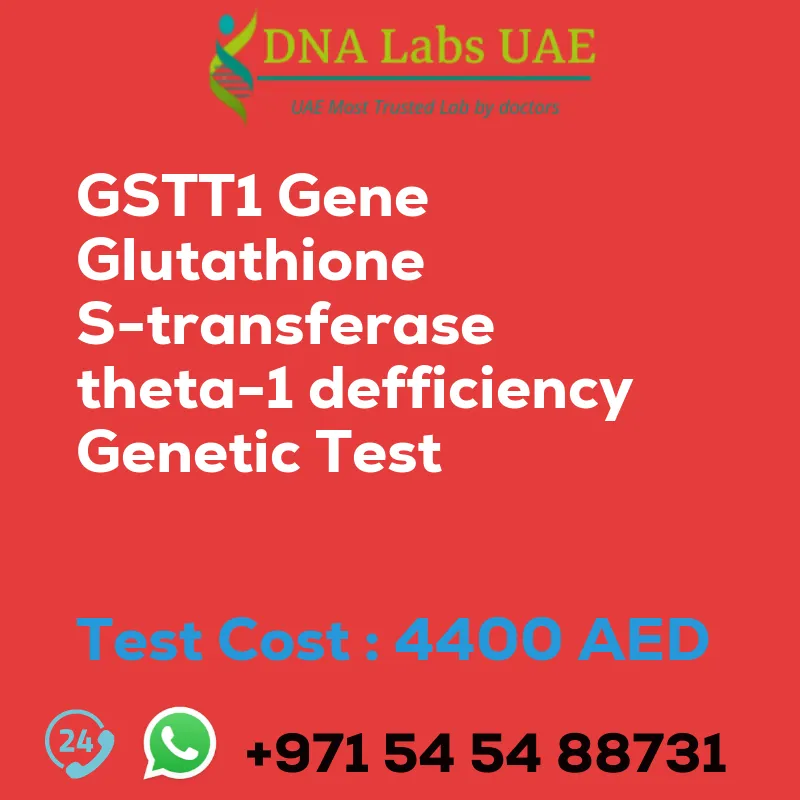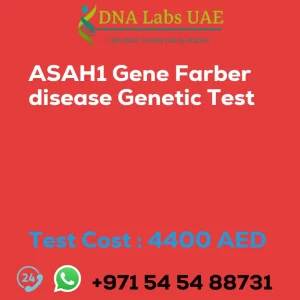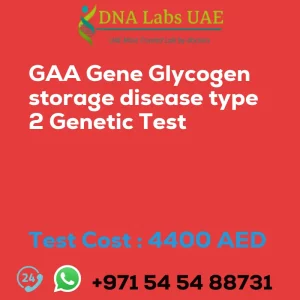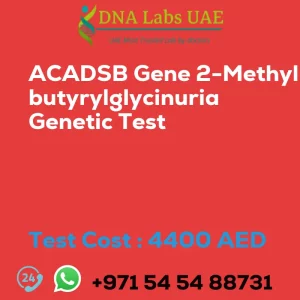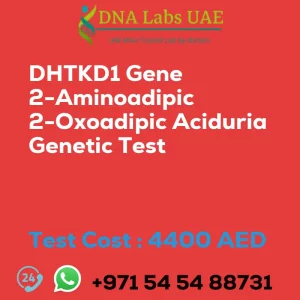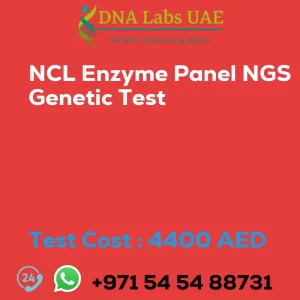GSTT1 Gene Glutathione S-transferase theta-1 defficiency Genetic Test
Cost: AED 4400.0
Components:
- Sample Condition: Blood or Extracted DNA or One drop Blood on FTA Card
- Report Delivery: 3 to 4 Weeks
- Method: NGS Technology
- Test Type: Metabolic Disorders
- Doctor: General Physician
- Test Department: Genetics
Pre Test Information:
Clinical History of Patient who is going for GSTT1 Gene Glutathione S-transferase theta-1 defficiency NGS Genetic DNA Test. A Genetic Counselling session to draw a pedigree chart of family members affected with Glutathione S-transferase theta-1 defficiency.
Test Details:
The GSTT1 gene encodes for the enzyme glutathione S-transferase theta-1 (GSTT1), which is involved in the detoxification of various xenobiotics and carcinogens. Some individuals may have a deficiency in GSTT1 due to a genetic variation, resulting in reduced or absent enzyme activity.
To determine if an individual has a deficiency in the GSTT1 gene, a next-generation sequencing (NGS) genetic test can be performed. NGS is a high-throughput sequencing technology that can analyze multiple genes simultaneously, including the GSTT1 gene. The NGS genetic test involves obtaining a DNA sample from the individual, usually through a blood or saliva sample. The DNA is then sequenced using NGS technology to identify any genetic variations or mutations in the GSTT1 gene.
If a deficiency in the GSTT1 gene is detected through NGS, it can provide valuable information about an individual’s susceptibility to certain diseases or their response to certain medications or environmental toxins. However, it is important to note that the presence of a GSTT1 deficiency does not necessarily mean that an individual will develop a specific disease or experience adverse effects from certain substances. Other genetic and environmental factors also play a role in determining an individual’s overall risk and response.
It is recommended to consult with a healthcare professional or genetic counselor before undergoing any genetic testing to understand the implications, limitations, and potential benefits of the test.
| Test Name | GSTT1 Gene Glutathione S-transferase theta-1 defficiency Genetic Test |
|---|---|
| Components | |
| Price | 4400.0 AED |
| Sample Condition | Blood or Extracted DNA or One drop Blood on FTA Card |
| Report Delivery | 3 to 4 Weeks |
| Method | NGS Technology |
| Test type | Metabolic Disorders |
| Doctor | General Physician |
| Test Department: | Genetics |
| Pre Test Information | Clinical History of Patient who is going for GSTT1 Gene Glutathione S-transferase theta-1 defficiency NGS Genetic DNA Test A Genetic Counselling session to draw a pedigree chart of family members affected with Glutathione S-transferase theta-1 defficiency |
| Test Details |
The GSTT1 gene encodes for the enzyme glutathione S-transferase theta-1 (GSTT1), which is involved in the detoxification of various xenobiotics and carcinogens. Some individuals may have a deficiency in GSTT1 due to a genetic variation, resulting in reduced or absent enzyme activity. To determine if an individual has a deficiency in the GSTT1 gene, a next-generation sequencing (NGS) genetic test can be performed. NGS is a high-throughput sequencing technology that can analyze multiple genes simultaneously, including the GSTT1 gene. The NGS genetic test involves obtaining a DNA sample from the individual, usually through a blood or saliva sample. The DNA is then sequenced using NGS technology to identify any genetic variations or mutations in the GSTT1 gene. If a deficiency in the GSTT1 gene is detected through NGS, it can provide valuable information about an individual’s susceptibility to certain diseases or their response to certain medications or environmental toxins. However, it is important to note that the presence of a GSTT1 deficiency does not necessarily mean that an individual will develop a specific disease or experience adverse effects from certain substances. Other genetic and environmental factors also play a role in determining an individual’s overall risk and response. It is recommended to consult with a healthcare professional or genetic counselor before undergoing any genetic testing to understand the implications, limitations, and potential benefits of the test. |

